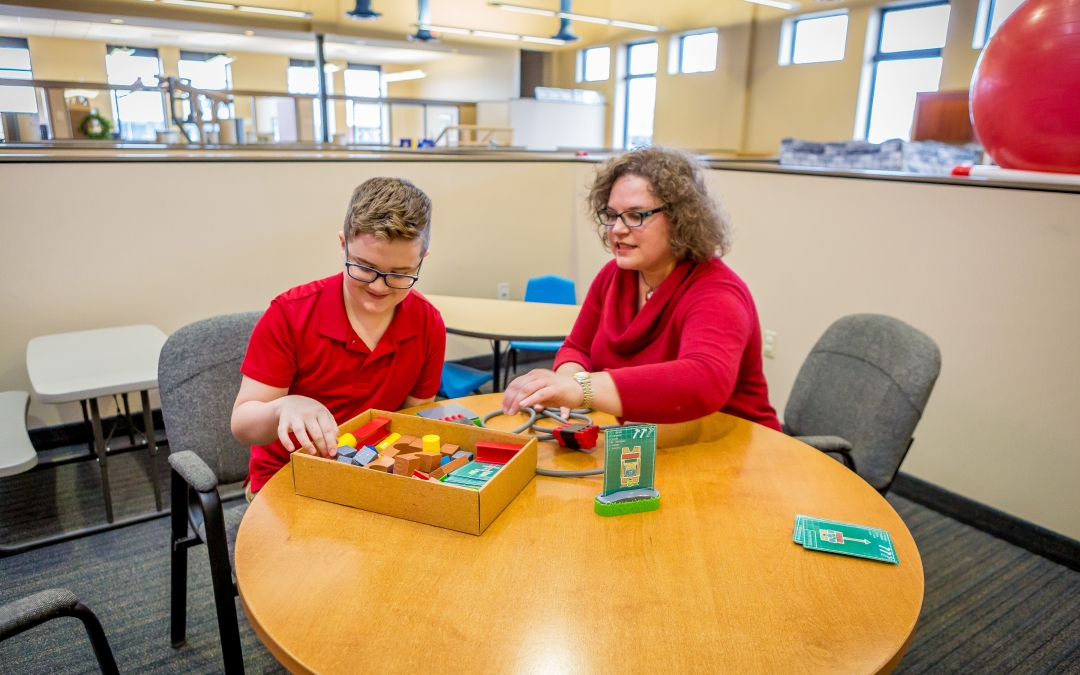Strengths-Based Approach Occupational Therapy
Pediatric outpatient occupational therapy at Niagara Therapy provides individualized, strengths-based care for each child. Strengths-based occupational therapy is a more modern approach to therapy when compared with the standard deficit-based approach. So what exactly is strengths-based care?
What is Strengths-Based Occupational Therapy?
Using a strengths-based care approach means that we utilize standardized assessments and child and caregiver interviews to develop goals that focus on the child’s strengths, as opposed to focusing on their deficits. School-based services frequently focus on developmental skills and rely on a deficits-based model. A deficits-based model focuses on what developmental skills are lacking in a child and places emphasis on repeated “practice” of that skill. However, current research shows that supporting a child’s neurodiversity leads to better outcomes. This is exactly what a strengths-based approach aims to do.
When using a strengths-based approach, deficits are still addressed, but the child’s strengths are used to build the foundation to improve areas of deficit. Improvements in skills come first from an understanding and acceptance of a child’s current patterns of behavior and brain functioning. Second, neuro-sensory strategies, not just skill practice, enhance the child’s ability to function in their multiple environments. In this model, it is understood that the child’s typical environment is not the clinic, but rather the classroom, the playground, their home, and their after-school program, necessitating the need to assess performance in all environments. Using a holistic approach, we can empower children through their strengths, rather than place emphasis on their deficits.
How Does a Strengths-Based Care Approach Work?
Strengths-based care is centered on the belief that each child or caregiver is the expert on his or her condition. The process of building a plan of care based on strengths begins at evaluation. Occupational therapists will facilitate a discussion of what areas are concerning to the child or caregiver, but also what kind of activities the child likes to participate in. A child’s strengths are often embedded in his or her favorite activities, which is why playing games can be such a useful therapy tool. The plan of care is based on what is most important to the caregiver and the child with the occupational therapist utilizing her knowledge to develop goals and treatments that will strategically bridge the gap between what is a strength and what is considered a weakness.
In a strengths-based care approach, environmental resources are also considered. Occupational therapists determine what equipment is available in the child’s environment that will facilitate improvement based on a child’s strengths. We recognize that resources are limited in an ever-changing world, necessitating the need to use what a child has access to in order to build on her abilities.
Positive reinforcement is a significant component of strengths-based care in children. As adults, we often fall into a pattern of correcting a child’s actions rather than praising a child’s good behavior or accomplishments and therefore, emphasizing deficits and leading to lower self-esteem and self-deprecation. Using this model, we build children up and increase their confidence!
Contact Us Today
At Niagara Therapy, we pride ourselves on using evidence-based practices to provide individualized care to each child. Caregivers are always involved in the intervention, and frequent caregiver education and training is emphasized in order to achieve carryover of strengths-based intervention at home and in the community. We complete regular “check-ins” with caregivers to assess this carryover and change our plans of care accordingly. At Niagara Therapy, we want to empower our children! If you’re interested in an individualized, strengths-based care assessment, contact us here or call Niagara Therapy today at 814-464-0627.



